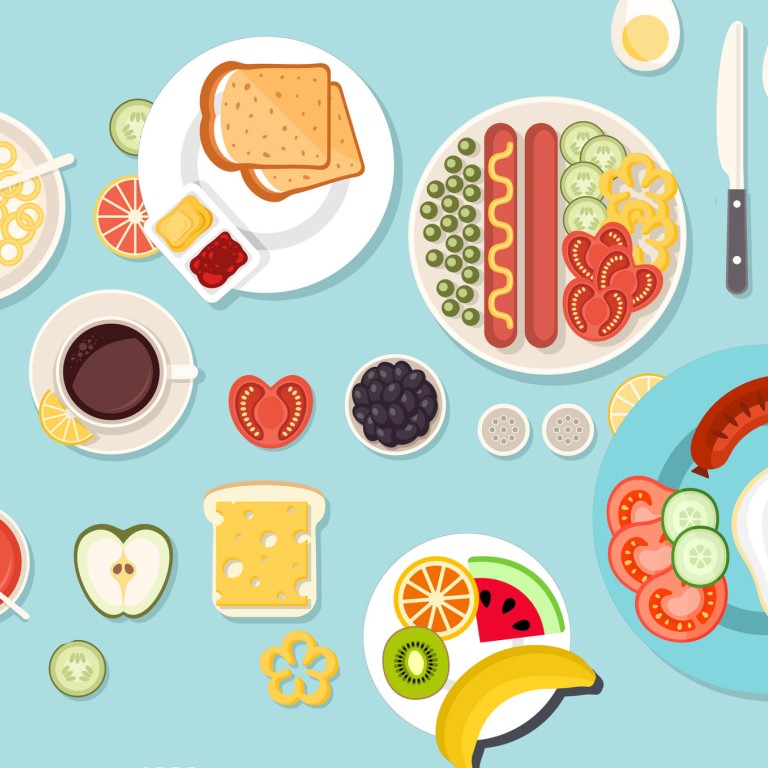
The one-meal-a-day diet - experts digest the pros and cons
Proponents of the one-meal diet insist people who want to lose weight are better off eating just once a day. But there's plenty of evidence to the contrary too
The assumption you must eat at least three meals a day just might be misguided. If you dislike eating breakfast and rarely find time for lunch at work, a one-meal policy makes outward sense - after all you still get to eat heartily late in the day, reducing three or more time-wasting rituals to a feast with possible weight-loss benefits.
Meet British proponent David Fowler, 46, one of the most visible practitioners of the one-meal diet, who started eating one meal a day while a stay-at-home dad in 2011.
Eating most of his calories in the evening meal meant he could fit his diet to the family's routine, while continuing to eat the food he enjoyed. He lost 13.5kg in five months.
"When I reached my target weight, I felt good about myself and good about life," he says.
Since then, the emergency services worker has managed to maintain his weight within about 4.5kg by dipping back into the diet when the need arises.
"I love eating this way because it means I get to eat what I want on a daily basis and still lose weight. No food is off limits and I rarely feel like I'm missing out," he says.
The theory goes that nobody needs to consume the standard 2,500 calories a day across several sittings. Allegedly, most people, especially those leading sedentary lives, only need a third as many, which can be downed in one session.
The British aristocrat Lord Falconer once lost 35kg over two years on the diet. He went without breakfast and lunch, munched on apples during the day and then had a normal dinner.
Likewise, the famously fit American general Stanley McChrystal reportedly eats just dinner. According to newspaper in Britain, McChrystal runs daily at "a ferocious pace", covering some 13 kilometres in an hour.
This minimalist nutrition trend may interest Hongkongers in light of their frenetic schedules and increasing obesity. According to the Centre for Health Protection, 37 per cent of Hongkongers, including almost half of all men, are overweight.
The practice is less faddish than it might seem, says Hong Kong-based nutritionist Courtney Moskal. It is observed by many cultures and religions - Hinduism, Judaism, Islam, Catholicism and Buddhism - through intermittent fasting.
It can lead to greater weight loss, better cognitive health ... longer lifespan
Research suggests the approach can lead to greater weight loss, better cognitive health, improved glucose metabolism, even a longer lifespan, Moskal says, citing a 2010 study published in the .
However, many studies say otherwise. Moskal cites a study that found rats subjected to intermittent fasting developed stiffened heart tissue, sapping the organ's ability to pump blood effectively.
"For the everyday active person, intermittent fasting may present uncomfortable challenges including mood swings, light-headedness, nausea and fatigue," she says.
Her advice on how to stay slim, "well-fuelled" and vigorous is simple. Follow a balanced diet of fruit and vegetables, low-fat dairy, whole grains and lean protein. Well-balanced dietary choices will ensure proper nutrient intake and healthy weight maintenance, she adds.
Nutritionist Tracie Hyam also advises against a one-meal-a-day diet. Although it can lead to initial weight loss, she says it cannot be sustained and you'll eventually need to eat more.
When you resume eating normally, you may well regain weight and experience physical discomfort, even internal damage. Potential symptoms include anything from anxiety, mouth ulcers and nausea to constipation. Hyam says sleep quality will also be affected: low calorie intake has been linked with the inability to sleep or maintain deep sleep. Long-term food restriction may also limit social experience and activity surrounding dining.
Cognitive function may also be impaired. Your brain and central nervous system require certain nutrients and calories for optimal function. Without adequate nutrients and energy intake, clarity and focus can be jeopardised.
"Brain fog" often stems from the failure to consume enough nutrients mainly found in healthy fats needed for brain and nerve function, according to Hyam.
Holistic nutritionist and chef Kathy Smart is also critical of the diet. The main drawback is low blood sugar, she says.
Without eating regular meals and snacks, your blood sugar will become unbalanced, sparking a domino effect of hunger for sugar and carbohydrates, because the body will try to self-regulate your blood sugar level. The imbalance can create cravings, irritability and brain fog.
Holistic health coach Tracee Gluhaich adds to the chorus of critics. The fact is people love to eat, which is why we have an obesity problem, says Gluhaich, the author of a health guide titled
Tell someone they can only eat once a day, and they will feel deprived and fall off the wagon, she warns.
"Diets are a temporary solution to a lifelong problem: they will only work when a commitment is made to a lifestyle change - a marathon versus a sprint," she says.
Instead, fill your body with a range of tasty foods that will give you energy and make you feel great, she says, citing the likes of papaya, asparagus, cantaloupe, avocado and eggplant.
Plus, make time for "self care": engage in personal pursuits that heal your body, or your mind, she says. She suggests an Epsom salt bath, nature walks, affirmations, meditation and stretching.
Finally, hydrate well, pursue a purposeful project, she says, and cap all your efforts with proper sleep.
